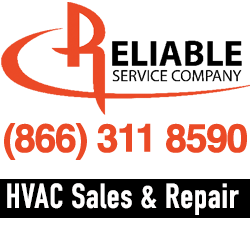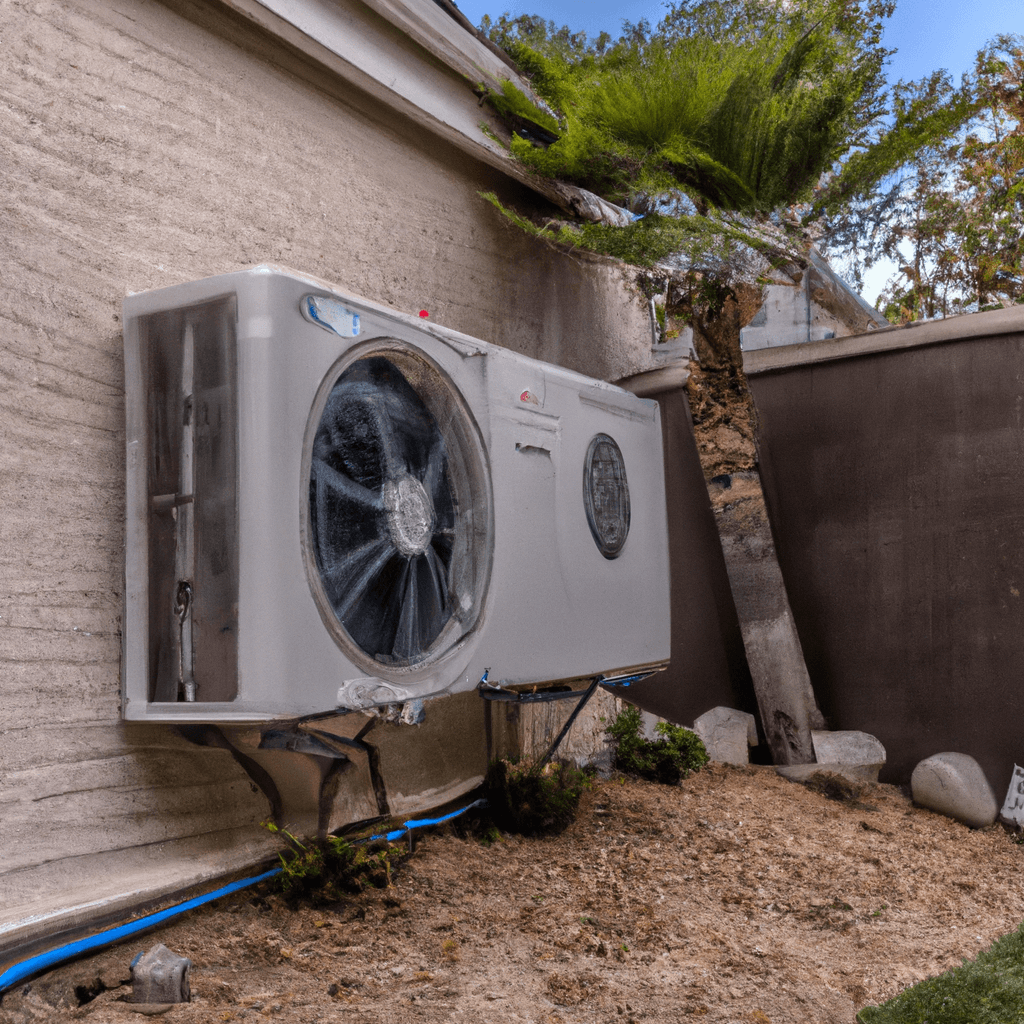Understanding Residential AC SEER Ratings
When it comes to purchasing a residential air conditioner, making an informed decision should be the top priority. Knowing the basic components of an AC and how they all work together is essential to making sure that what you buy is the right choice for your home and your budget. Understanding SEER ratings is an important part of this research.
What are SEER Ratings?
SEER stands for Seasonal Energy Efficiency Ratio, and is an efficiency rating assigned to an air conditioner based on its cooling efficiency. A standard air conditioner will typically have a SEER rating of between 13 and 17. The higher the SEER rating, the more efficient the AC unit is, and the less power it needs to cool your home. In general, a unit with a higher SEER rating will cost more, but can save you money in the long run with lower energy bills.
What are the Benefits of a High SEER Rating?
A higher SEER rating means a more energy-efficient unit that is capable of cooling your home faster and more efficiently. A high SEER air conditioning unit can provide more comfortable temperatures year-round and will help you save money on your energy bills. Lower energy bills mean more money in your pocket each month, so investing in an air conditioner with a high SEER rating can pay off in the long run.
What are the Limitations of a High-SEER Model?
While a high-SEER unit has many advantages, it can also have some drawbacks. The cost of a high-efficiency unit is typically higher than a lower efficiency model, so you must weigh the long-term savings of investing in a higher efficiency unit against the upfront cost of purchase. Additionally, many of these units may not be suitable for certain homes or climates where colder temperatures are more common. In those climates, a lower efficiency unit with a lower SEER rating may be better suited for your needs.
What is the Difference Between Single- and Dual-Stage Compressors?
The compressor is the core component of any air conditioner, as it is responsible for compressing the refrigerant necessary for the cooling process. A single-stage compressor is the more basic form, and as the name implies, can operate at only one speed. This means that the compressor will turn on and off to regulate how much cool air is being produced. A dual-stage compressor, on the other hand, can operate at two speeds. This allows the unit to adjust how much cool air it is producing, reducing energy consumption and improving efficiency.
What is the Difference Between Single- and Variable-Speed Fans?
An air conditioner’s fan is responsible for pushing the cooled air throughout the ducts and into your home. In single-speed fan-equipped units, the fan will kick on and run at one speed, regardless of your cooling needs. A variable-speed fan, on the other hand, is able to adjust its speed to precisely meet the cooling needs of your home. This allows the fan to run more slowly when less cooling is needed, which can improve efficiency and help you save money on your energy bills.
What Additional Features Should I Look For When Purchasing an AC?
When in the market for a new residential air conditioner, there are a few additional features you may want to consider. A two-stage AC, like the SEER 16 model, can provide superior energy and cost savings by running at a lower speed most of the time, and only ramping up to full power when additional cooling is needed. Additionally, you may want to look for an ENERGY STAR-certified unit, as these ACs can provide substantial energy savings compared to the standard models. Additionally, make sure to purchase from a reliable, local appliance repair service with good reviews so you can be sure to get the best service and installation possible.
Ultimately, understanding SEER ratings and choosing the air conditioner that best meets your needs can help you make an informed decision that can save you money over the long run. Knowing the differences between single and dual-stage compressors, single and variable-speed fans, and the benefits of purchasing an ENERGY STAR-certified unit will help you make the best choice for your home. To get started on finding the right AC for your home, contact an experienced and reliable appliance repair service like Local Reliable Appliance Repair at (866) 311-8590.



SEER Rating: Preventive Steps for a Healthy HVAC System
In modern homes, HVAC systems are present to ensure a comfortable indoor environment. If a homeowner wishes to maintain a healthy HVAC system, they should take preventative measures to ensure their SEER (Seasonal Energy Efficiency Ratio) rating stays as high as possible. This article outlines the recommendations of manufacturers, local appliance companies, and HVAC technicians regarding preventive action to avoid SEER rating issues.
Manufacturer Recommendations
When installing a new HVAC system, manufacturers suggest taking the following preventative measures to ensure the SEER rating stays high:
-
Use an experienced technician: It is essential to use an experienced technician to ensure the HVAC system installation is done correctly.
-
Follow all installation procedures: To get the most out of the HVAC system, it is essential to follow all installation procedures included in the product manual.
-
Have the system inspected: The system should be regularly inspected to make sure it is operating correctly and that there are no deficiencies.
Local Appliance Company Recommendations
The recommendations from local appliance companies for preserving a healthy SEER rating include:
-
Use quality materials: Quality materials should be used during installation and maintenance to avoid any potential issues with the system’s efficiency.
-
Use correct safety protocols: During the installation and maintenance of the system, safety protocols must be followed to ensure personnel safety.
-
Regularly inspect and clean: Regularly inspect and clean the system to make sure it is functioning properly and that there are no issues with the SEER rating.
HVAC Technician Recommendations
HVAC technicians support the above manufacturers and local appliance company recommendations, and additionally suggest:
-
Use the manufacturer’s original equipment parts: Whenever possible, use original equipment parts to ensure the overall efficiency of the system is maintained.
-
Purchase the correct size equipment: The HVAC system should be sized correctly to get the most benefit from the system.
-
Keep up with regular maintenance: Regular scheduled maintenance according to the manufacturer’s recommendations should be completed to ensure the system’s optimal performance.
In conclusion, SEER ratings can be maintained with proper installation and regular, scheduled maintenance. Homeowners should follow the recommendations of the manufacturer, local appliance company, and HVAC technician to ensure their system operates efficiently and safely.
What a SEER Rating is & Its Average Repair Cost
SEER stands for Seasonal Energy Efficiency Ratio. It is a measure of how efficiently an air conditioner works, and it is determined by the unit’s cooling capacity during a season divided by the amount of energy it consumes over the same period. A higher value indicates a more efficient unit.
On average, repairs for a SEER rating can range from a minimum of $150 to a maximum of $4,000, depending on the complexity of the issue and the part needed to rectify it. The cost of labor can also make up a substantial portion of the final costs, especially in California. It’s important to source local, reliable air conditioning and heating services to ensure you are getting quality work at a reasonable price.
Below is an itemised list of common parts, materials, service fees and minimum and maximum repair costs you can expect for SEER rating repairs or installations:
-
Parts: A condenser, compressor, fan motor and contactor can range from $250-$650.
-
Materials: A new filter, refrigerant gas, and wiring can cost up to $500.
-
Service Fees: Labor costs vary, depending on the complexity of the repair and can range from $50-$300.
-
Minimum Repair Cost: All in all, you should expect to pay a minimum of $150 for a SEER rating repair.
-
Maximum Repair Cost: Complex repairs can cost up to $4,000 in California.
For reliable SEER rating repair or installation services at an affordable rate, you should contact Local Reliable Air Conditioning & Heating at (866) 311-8590.
Use Uncommon Words, Emotional Words, and Power Words. Make text easy to read.
The Benefits of Hiring a SEER-Rated Home Appliance Technician
Having your home’s essential appliances and HVAC systems in top condition adds year-round comfort and convenience. That’s why the experts at Reliable Air Conditioning & Heating, a reliable family-owned business in California, provide comprehensive and trustworthy services for all repairs and installations.
At Reliable A/C & Heating, their technicians are highly-trained and have a minimum of 5 years experience with SEER rating. This makes them the perfect choice for lifetime customer satisfaction and value.
SEER (Seasonal Energy Efficiency Ratio) rating helps your home operate more efficiently and cut energy costs. Therefore, Reliable Air Conditioning & Heating’s technicians are knowledgeable enough to help clients find the best unit to fit their lifestyle and budget.
All repairs and installations at Reliable A/C & Heating come with a 90-day warranty, as well as same-day service as part of their quick and efficient customer care. They are licensed and insured, so you can rest assured of quality work, and their rates are fair and affordable.
Rely on Reliable Air Conditioning & Heating for all your home appliance and HVAC needs. Their professionals are well-equipped with the knowledge and expertise needed for acclaimed services in SEER rating, enabling you to get the most from your purchase.
The company is the go-to source for homeowners and business owners in California looking for competent technicians in SEER rating. Trust Reliable Air Conditioning & Heating to keep your home systems efficient and your energy costs low.
FAQ – Understanding Residential AC SEER Ratings
What is SEER rating?
SEER stands for ‘Seasonal Energy Efficiency Ratio.’ It is the measure of an air conditioning system’s efficiency. The SEER rating reflects the amount of cooling the system produces divided by the amount of energy it consumes. The higher the SEER rating, the more efficient the system is.
What is the average SEER rating for residential air conditioning?
The average SEER rating for residential air conditioning systems is around 16. However, higher energy efficient models can have ratings as high as 22.
How does a homeowner know what SEER rating to choose?
The best way for a homeowner to know what SEER rating to choose is to consider their budget and the efficiency of the model they are considering. It is also important to get advice from an experienced professional who can help determine what system is best suited to their needs.
How can a homeowner save money with a higher SEER rating?
A homeowner can save money by investing in a system with a higher SEER rating, as these models are more efficient and can help to reduce energy costs over the lifetime of the system.
Is it worth it to buy a higher SEER rating?
Yes, investing in a higher SEER rating is often worth it because of the cost savings it can bring over the lifetime of a system. However, it is important to make sure to choose a model that is appropriate for a homeowner’s budget and the size and type of their home.
For help in choosing the right residential AC SEER rating for your home, call Local Reliable Appliance Repair at (866) 311-8590.

